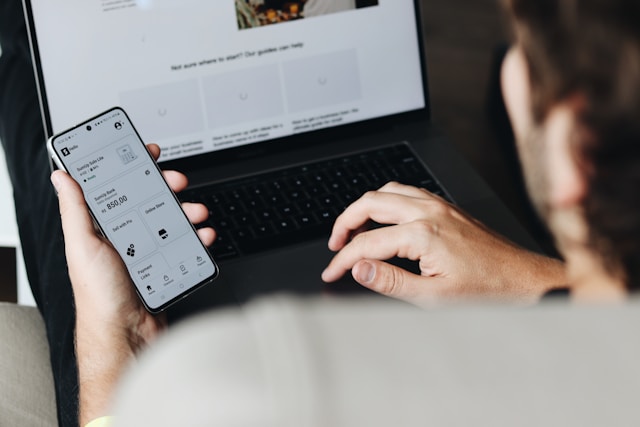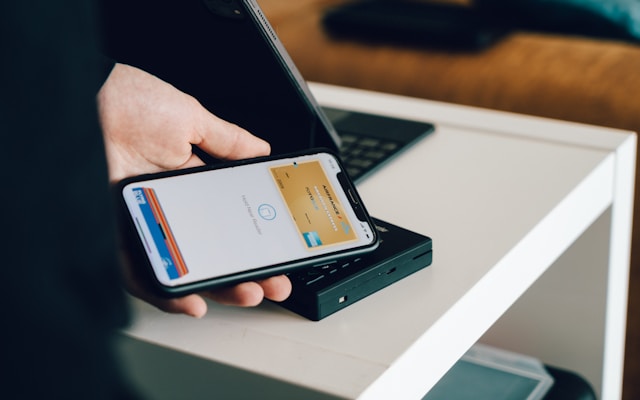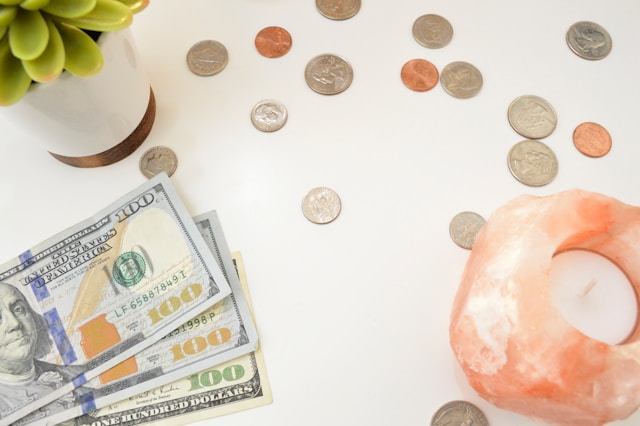Learn about Top Personal Finance Apps & Tools You Need. Discover top personal finance apps & tools to track spending, budget, save, and invest wisely.
Introduction
Budgeting, keeping track, and strategizing future financial plans are all skills that everyone should have mastered, although many individuals fail in money handling. It is in this that personal finance apps and tools come in. They offer a digital, easy-to-use system of organizing finances, tracking expenditures, saving money, and investment planning.
Definition of Personal Finance Apps & Tools
Personal finance applications and tools are computer programs that assist customers in organizing, tracking, and controlling their money. They provide application features such as budgeting and expense keeping, savings, investments, and debt management.
The main objective is to provide the users with the ability to manage their fiscal existence in an uncomplicated way without utilizing a spreadsheet or mathematical equations.
These tools are either standalone applications or included in bigger financial application suites. Most current apps can be found on mobile devices, have real-time updates and notifications, and can keep users abreast of their financial obligations.

Top Personal Finance Apps & Tools You Need
1. Mint
Mint is a free personal finance application that uses your bank accounts to monitor spending, bills, and budget. It also gives tips, notifications, and graphic summaries to assist you in managing money.
2. YNAB (You Need a Budget)
YNAB helps its users to budget and spend through the zero-based budgeting method. It promotes the monitoring of all the dollars, cutting down on debts, and saving by organizing finances and setting targets at regular intervals.
3. Personal Capital
Personal Capital monitors the costs and investments. It has functions to compute net worth, retirement, portfolio analysis, and budgeting, and is therefore best suited to both financial management and wealth tracking users.
4. PocketGuard
PocketGuard checks the expenses and calculates the amount of money left to spend and save after bill and savings goals. It allows avoiding excess spending, limiting resources, and provides users with a clear picture of the funds available in real-time.
5. Goodbudget
Goodbudget applies the envelope system of budgeting electronically. Consumers spend their money in various categories, keep manual records, and go about their finances efficiently. It is excellent in planning and being budget-friendly.
6. EveryDollar
EveryDollar is a budgeting application by Dave Ramsey. It can assist in tracking revenues and expenses and making monthly budgets and spending effectively, reminding users that savings and debt repayment are the priorities.
7. Stash
Stash lets you make small deposits and suggests ways to build a portfolio. It also has some budgeting and banking features, so it can be an effective app when you are a beginner who wishes to save and invest in small portions.
8. Honeydue
Honeydue will be the program that enables couples to keep track of their joint and individual expenditures. It helps to share bills, balances, and budgets, supporting transparency and communication among the partners regarding financial planning.
9. Quicken Simplifi
Quicken has created a spending, budgeting, and savings financial application known as Simplifi. It provides graphical reports, personalized categories, and suggestions to enable users to achieve financial objectives effectively.
10. Spendee
Spendee monitors revenues, costs, and budgets using user-friendly charts. It supports multiple wallets, joint accounts, and enables the user to plan their spending and savings, and keep their finances systematically managed.
Saving & Investing
1. Acorns
Acorns is a micro-investing app that rounds up all of your daily spending to the nearest dollar and invests the extra change. It is a great choice when the person is a beginner and wants to invest with minimal effort. Acorns has provided different investment portfolios depending on the riskiness.
2. Monzo
Monzo is an online bank that provides up-to-date spending, sub-accounts to practice savings objectives, and budgeting. Its flagship products have increased features, nd thus it is a complete financial management tool.
Benefits of Using Personal Finance Apps & Tools
1. Expense Tracking
Expense tracking may help users to see what they spent on daily, automatically group their transactions, and reveal patterns, make better decisions, less frivolous spending, and have more control over their money to manage of money.
2. Budget Management
Budget management allows one to limit certain types of expenditures, track the status of expenses in real-time, and change any behavioral patterns that put expenses over the limit, thereby defining good spending and preventing bad spending.
3. Investment Opportunities
Monitoring stocks, funds, and portfolios, personal finance applications provide an individual with the understanding to assess tendencies, make clever investment choices to increase wealth effectively and strategically over time.
4. Financial Goal Setting
Goal-setting can help users to define a target, say, savings, debt payment, purchase, and then systematically monitor their performance, be inspired, and turn their vague financial fantasies into concrete, measurable, and feasible strategies.
How Personal Finance Apps Can Transform Financial Habits
Personal finance apps and tools can be not only easy to use and easy to deal with money, but also encourage good financial habits. They can assist the users to save money and to invest efficiently and effectively since it provides real-time tools to avoid unnecessary costs. Long-term wealth, reduction of financial stress, and long-term financial literacy are other benefits that can be achieved through these apps.
How to Choose the Right App or Tool
The most suitable personal finance application is based on your requirements:
- Setting financial goals (budgeting, saving, debt repayment, investing).
- Make sure all of your devices and bank accounts synchronize.
- Search to find easy-to-use designs and useful visualizations.
- Make sure that there is good security to handle sensitive financial data.
- Weigh between free and paid and decide which is the best value.
Common Features to Look For
Some of the features are different based on the app, but some required capabilities are:
- Automatic classification of transactions.
- Budget development and monitoring.
- Bill reminders and alerts
- Goal-setting tools
- Investment and tracking portfolio.
- Security and encryption.
- Tailor-made dashboards and reports.
Future of Personal Finance Tools
Personal finance is in the digital future. Some of the uses of AI include offering personalized financial planning, identifying spending patterns, and auto savings and investments. Active management and intuitive usage of finances become available through the use of biometric security, notifications in real-time, and forecasting budgets.

FAQs
Are personal finance apps safe to use?
Yes, just like in the past, almost all trusted apps maintain the financial data security through-the-bank encryption, two-way authentication, and other security protocols. Always examine the reviews of the apps and their security credentials.
Can personal finance apps help me save money?
Absolutely. Apps come after spending, find unnecessary spending, suggest changes in the budget, and automate savings targets.
Are personal finance apps suitable for beginners?
Yes. Most of the apps are user-friendly, with a straightforward interface and instruction manuals that beginner users can easily follow while inviting the specialist’s support.
Conclusion
Applications and software for managing personal finances are intended to help the user manage their money-and-track money probably spent, amounts budgeted and saved, and investments-and-that that wise decisions can be made considering these parameters. In that sense, digital solutions guarantee that one takes full control over personal finances, experiences little stress, and successfully attains long-term financial goals.





